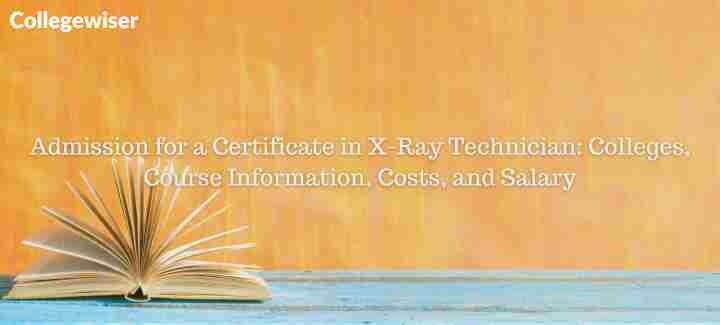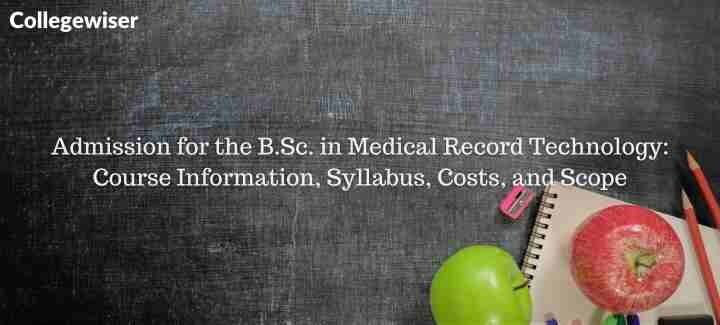Admission for BSc Cardiovascular Technology 2023: Graduate students can get a degree in BSc Cardiovascular Technology. It seeks to instruct students in a variety of cardiovascular diagnosis, therapy, and intervention methods. Students who enroll in this course will gain knowledge and expertise in the field of cardiovascular care. Particularly in cardiac imaging, cardiac catheterization, cardiac rehabilitation, and electrocardiography. Below, complete and reliable information on BSc CT admissions is given:
Enquire Now
Eligibility Requirements: According to the requirements established by the majority of institutions offering admission to BSc Cardiovascular Technology courses, each applicant must have earned a 10+2 diploma or an equivalent degree from a reputable institution. To compete for admission, you need to have an average score higher than 50%. This evaluation criteria may also change from one institute to another.
Numerous specialities are available in the Tarifa Cardiovascular Technology study area. Program options are also varied. These include echocardiography, invasive cardiology, cardiovascular rehabilitation, and electrophysiology, among others. By choosing one of these specializations, students can concentrate on a particular area of study.
The processes for the admission process for the BSc Cardiovascular program are outlined here.
Application: After filling up their application forms, candidates must submit them. Along with the most recent academic transcript, statement of purpose, fee challan, and recommendation letters, these forms will be sent.
The AIIMS entrance exam, NEET UG (conducted by NTA), and many other state-level entrance exams are among the tests that candidates must pass in order to be admitted to a program in BSc Cardiovascular Technology.
Interviews: The last stage of every degree program’s admissions procedure is an interview. The shortlisted candidates’ talents are evaluated here, and they are then given guidance in selecting their elective courses and specialities.
Merit-Based Selection: Candidates applying through the merit-based admissions process must make sure that their most recent academic performance complies with the University’s requirements.
Highlights of BSc Cardiovascular Technology Admissions
| Course Name | Bachelor of Science in Cardiovascular Technology |
| Eligibility | Passed 10+2 with Physics, Chemistry & Biology |
| Duration | 3 Years |
| Average Fee Structure | INR 25k to 65K per year |
| Admission Process | Entrance exam based/ Merit-based |
| Average Salary Offered | INR 2 to 4 LPA |
| Employment Area | Rehabilitation Centres, NGOs, Healthcare offices, Colleges, Universities, Govt Hospitals, Private Hospitals, Nursing |
| Job Profiles | Cardiologist, Cath Lab Technician, Nephrologist, Heart Specialist, Vascular Specialist |
Admission 2023 for BSc Cardiovascular Technology
Admission to the BSc Cardiovascular Technology program is based on academic achievement and results on the entrance exam. This three-year program is available to eligible students at places like SRIHER, RUHS, and others. To enroll in this course, one must have completed the 12th grade.
In addition, in order to pass the 12th grade, students should take Physics, Chemistry, and Biology. Most institutions in India require a score on an entrance test like the NEET-UG. The prevention and treatment of circulatory and cardiac system disorders are covered.
Latest updates for BSc Cardiovascular Technology
Manipal University now accepts applications for the BSc Cardiovascular Technology program. Applications are accepted through June 15, 2023.
The final day is June 20, 2023. (Provisionally) submit an application for admission to the Sharda University’s BSc Cardiovascular Technology program for the 2023–2024 academic year.
GD Applications are being accepted for the BSc Cardiovascular Technology program at Genka University through July 1, 2023. Tentatively
Admission for BSc Cardiovascular Technology: eligibility requirements
Students must have finished their 10+2 with a minimum score of 50% and studied Physics, Chemistry, and Biology as core topics in order to enroll in the BSc in Cardiovascular Technology program.
The two options for applying to this programme are on the basis of merit and taking an entrance exam.
A frequent admission test for a BSc program is called APEAMCET.
Structure for a BSc in Cardiovascular Technology
The BSc Cardiovascular Technology course’s annual tuition ranges from INR 25K to 65K on average. Depending on demand from the university, it might be altered.
Merit-Based
Candidates for this program must have completed their 10+2 education in the science stream with a strong grade.
a distance education program
It is a course that is not available in distant learning formats at several Indian colleges. The course can be taken in the typical manner. Students must show up to class regularly and master the material in both theoretical and practical ways. Students will receive advice from instructors and have access to other learning resources in normal mode.
Exam for the BSc in Cardiovascular Technology
The BSc cardiovascular program requires applicants to take an entrance exam. One of the required entry tests for a certain BSc program is the APEAMCET. Other entry tests include:
Common Entrance Test (CET) for DAVV
The GCET (Goa Common Entrance Test)
Scope of the BSc Cardiovascular Technology GITAM Admission Test (GAT)
Students can learn about a variety of complex treatments for cardiac disorders, including the use of defibrillators and the implantation of stents. Students studying cardiovascular science hone their technical skills through oral and written debates.
A person with a BSc in cardiovascular technology may find employment in rehabilitation centres, non-governmental organizations (NGOs), healthcare offices, colleges, universities, government hospitals, private hospitals, nursing homes, and other facilities.
Recruitment Areas for BSc Cardiovascular Technology
After earning a BSc in Cardiovascular Technology, students have a wide range of alternatives. Below are some of the best recruitment sectors, which students should review.
Technician for echocardiography
Expert in cardiovascular technology
Cardiac Sonographers EKG Techs
BSc in Vascular Technology Salary for Cardiovascular Technology
The remuneration fully varies depending on the speciality that students select for their B.Sc. in Cardiac Care Technology. The variables influencing geography, specialty, industry, etc. are also significant. Candidates can succeed in their jobs and earn more money by participating in internships. Cardiovascular professionals often make between INR 2 and 4 LPA.
Admission for BSc Cardiovascular Technology: Syllabus
| First Year | Second Year | Third Year |
| Human Anatomy | Advanced Electrocardiography | Cardiac Catheterization Part I – Introductory course |
| Anatomy of the Cardiovascular system | Exercise ECG | Cardiac Catheterization Part II |
| Physiology | Echocardiography | Cardiac Catheterization Part III – Pacing and Electrophysiology |
| Pathology and Pathophysiology | Holter Recording | — |
| Microbiology | — | — |
| Pharmacology and Therapeutics | — | — |
| Foundation English | — | — |
| Fundamentals of Computer | — | — |
BSc Cardiovascular Technology Colleges & Fee
| University/College Name | Fee per Semester (Approx) in INR |
| Hindustan Institute of Technology & Science | 74,500 |
| Ramaiah University | 64,600 |
| Shrinivas Institute of Allied Health Science | 56,900 |
| Sharada University | 74,641 |
| Sanskriti University | 60,000 |
| RIMT University | 48,500 |
| Yenagoa School of allied health science | 49,700 |
| SRM Institute of Science and Technology | 62,250 |
| Global University | 55,000 |
BSc Specializations with Eligibility & Fee
| Courses | Eligibility | Duration | Fees Approx. |
| B.Sc. | 12th (Science Stream) | 3 Years | INR 19,000 – INR 28,000 YEAR |
| B.Sc. Botany | INR 20,000– INR 28,000 YEAR | ||
| B.Sc. Agriculture | INR 20,000 – INR 28,000 YEAR | ||
| B.Sc. Hardware & Networking | INR 23,000 – INR 45,000 YEAR | ||
| B.Sc. Home Science | INR 16,000– INR26,000 YEAR | ||
| B.Sc. Multimedia | INR 16,000 – INR 30,000 YEAR | ||
| B.Sc. Physical Sciences | INR17,000 – INR 38,000 YEAR | ||
| B.Sc. (Hons.) Physics | INR 15,000 – INR 32,000 YEAR | ||
| B.Sc. Environmental Science | INR 16000 – INR25,000 YEAR | ||
| B.Sc. Physics | INR 15,500 – INR26,000 YEAR | ||
| B.Sc. Microbiology | INR 16,000 – INR 34,000 YEAR | ||
| B.Sc. Hons Microbiology | INR 16,000 – INR26,000 YEAR | ||
| B.Sc. Hons Botany | INR 21,000 – INR 27,000 YEAR | ||
| B.Sc. Economics | INR 16,000 – INR 38,000 YEAR | ||
| B.Sc. Fire and Safety | INR 15,000 – INR 25,000 YEAR | ||
| B.Sc. Geography | INR 16,000 – INR 26,000 YEAR | ||
| B.Sc. Hotel Management Tourism | INR 15,500 – INR 30,000 YEAR | ||
| B.Sc. Jewelry Design | INR22,000 – INR 45,000 YEAR | ||
| B.Sc. Mass Communication | INR 16,000 – INR 32,000 YEAR | ||
| B.Sc. Psychology | INR 16,000 – INR 32,000 YEAR | ||
| B.Sc. Telecommunication | INR 15,500 – INR25,000 YEAR | ||
| B.Sc. Electronics | INR 16,000 – INR 30,000 YEAR | ||
| B.Sc. (Electronics & Communication) | INR 22,000 – INR 30,000 YEAR | ||
| B.Sc. Medical Laboratory Technology | INR 23,000 – INR40,000 YEAR | ||
| B.Sc. Software Engineering | INR 26,000 – INR 45,000 YEAR | ||
| B.Sc. IT | INR 25,000 – INR 40,000 YEAR |




